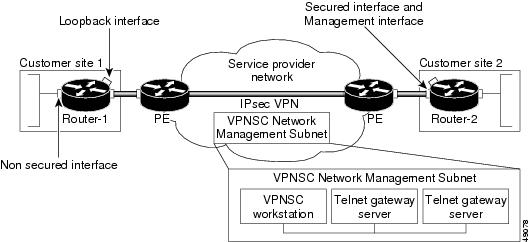Featured
Table of Contents
Ipsec Basics
These settlements take 2 types, primary and aggressive. The host system that starts the process recommends file encryption and authentication algorithms and negotiations continue till both systems pick the accepted protocols. The host system that starts the procedure proposes its favored file encryption and authentication approaches but does not negotiate or alter its choices.
When the information has been transferred or the session times out, the IPsec connection is closed. The private secrets utilized for the transfer are erased, and the procedure comes to an end.
IPsec utilizes two primary procedures to supply security services, the Authentication Header (AH) protocol and the Encapsulating Security Payload (ESP) procedure, along with numerous others. Not all of these protocols and algorithms have actually to be used the particular choice is figured out throughout the Settlements phase. The Authentication Header procedure verifies data origin and stability and offers replay security.
How Do Ipsec And Vpn Work?
A relied on certificate authority (CA) provides digital certificates to verify the interaction. This allows the host system receiving the data to confirm that the sender is who they declare to be. The Kerberos procedure provides a centralized authentication service, enabling gadgets that use it to verify each other. Various IPsec implementations might utilize different authentication techniques, but the result is the same: the safe transfer of information.
The transport and tunnel IPsec modes have several key distinctions. Transport mode is mainly used in situations where the two host systems communicating are relied on and have their own security treatments in place.
File encryption is applied to both the payload and the IP header, and a new IP header is added to the encrypted packet. Tunnel mode offers a secure connection between points, with the initial IP packet wrapped inside a new IP packet for additional protection. Tunnel mode can be used in cases where endpoints are not trusted or are lacking security systems.
1. Define Ipsec? 2. What Ipsec Used For? 3. What Are The ...
This indicates that users on both networks can communicate as if they were in the exact same area. Client-to-site VPNs enable individual devices to link to a network remotely. With this option, a remote worker can operate on the exact same network as the rest of their team, even if they aren't in the exact same place.
(client-to-site or client-to-client, for example) most IPsec geographies come with both benefits and downsides. Let's take a closer look at the benefits and drawbacks of an IPsec VPN.
An IPSec VPN supplies robust network security by securing and confirming information as it travels between points on the network. An IPSec VPN is flexible and can be configured for various usage cases, like site-to-site, client-to-site, and client-to-client. This makes it a good choice for companies of all shapes and sizes.
How Does A Vpn Work? Advantages Of Using A Vpn


IPsec and SSL VPNs have one main distinction: the endpoint of each procedure. For the most part, an IPsec VPN lets a user link remotely to a network and all its applications. On the other hand, an SSL VPN produces tunnels to specific apps and systems on a network. This limits the ways in which the SSL VPN can be utilized however reduces the probability of a compromised endpoint leading to a wider network breach.
For mac, OS (by means of the App Shop) and i, OS variations, Nord, VPN utilizes IKEv2/IPsec. This is a combination of the IPsec and Internet Key Exchange variation 2 (IKEv2) protocols.
Stay safe with the world's leading VPN.
What Is Ipsec And How Ipsec Does The Job Of Securing ...
Before we take a dive into the tech things, it is necessary to see that IPsec has quite a history. It is interlinked with the origins of the Internet and is the outcome of efforts to establish IP-layer file encryption approaches in the early 90s. As an open procedure backed by continuous development, it has proved its qualities throughout the years and even though opposition protocols such as Wireguard have emerged, IPsec keeps its position as the most extensively used VPN procedure together with Open, VPN.
SAKMP is a protocol used for developing Security Association (SA). This treatment involves 2 actions: Stage 1 establishes the IKE SA tunnel, a two-way management tunnel for crucial exchange. When the communication is established, IPSEC SA channels for protected information transfer are developed in stage 2. Qualities of this one-way IPsec VPN tunnel, such as which cipher, approach or secret will be used, were pre-agreed by both hosts (in case of IPsec VPN, this is a connection in between an entrance and computer).
IPsec VPNs are widely utilized for numerous factors such as: High speed, Extremely strong ciphers, High speed of establishing the connection, Broad adoption by operating systems, routers and other network devices, Naturally,. There are alternative choices out there such as Open, VPN, Wireguard and others (see the list of vital VPN protocols on our blog).
Internet Protocol Security (Ipsec)
When establishing an IKEv2 connection, IPsec utilizes UDP/500 and UDP/4500 ports by default. By basic, the connection is established on UDP/500, however if it appears throughout the IKE facility that the source/destination is behind the NAT, the port is changed to UDP/4500 (for info about a method called port forwarding, check the short article VPN Port Forwarding: Great or Bad?).
There are several differences in regards to technology, usage, advantages, and downsides. to encrypt HTTPS traffic. The purpose of HTTPS is to protect the content of interaction between the sender and recipient. This makes sure that anyone who wishes to obstruct interaction will not be able to find usernames, passwords, banking information, or other sensitive data.
IPsec VPN works on a different network layer than SSL VPN. IPsec VPN runs on the network layer (L3) while SSL VPN operates on the application layer.
What Are Ipsec Policies?

When security is the main issue, modern-day cloud IPsec VPN must be picked over SSL considering that it secures all traffic from the host to the application/network/cloud. SSL VPN secures traffic from the web internet browser to the web server only. IPsec VPN protects any traffic between 2 points determined by IP addresses.
The issue of choosing in between IPsec VPN vs SSL VPN is carefully related to the topic "Do You Required a VPN When A Lot Of Online Traffic Is Encrypted?" which we have actually covered in our current blog site. Some may think that VPNs are barely essential with the increase of built-in file encryption straight in e-mail, internet browsers, applications and cloud storage.
Latest Posts
7 Best Vpns For Business In 2023 And Some To Avoid
Best Phone Vpn In 2023
Vpn Not Working On Windows - Common Errors & Fixes